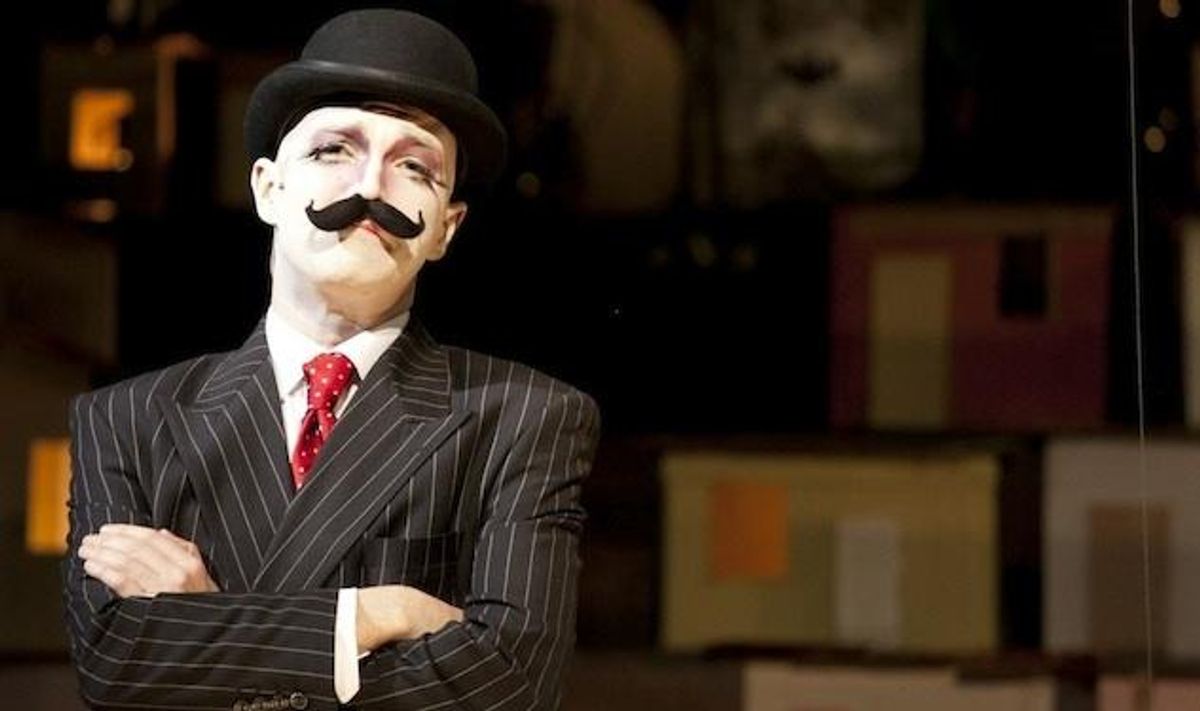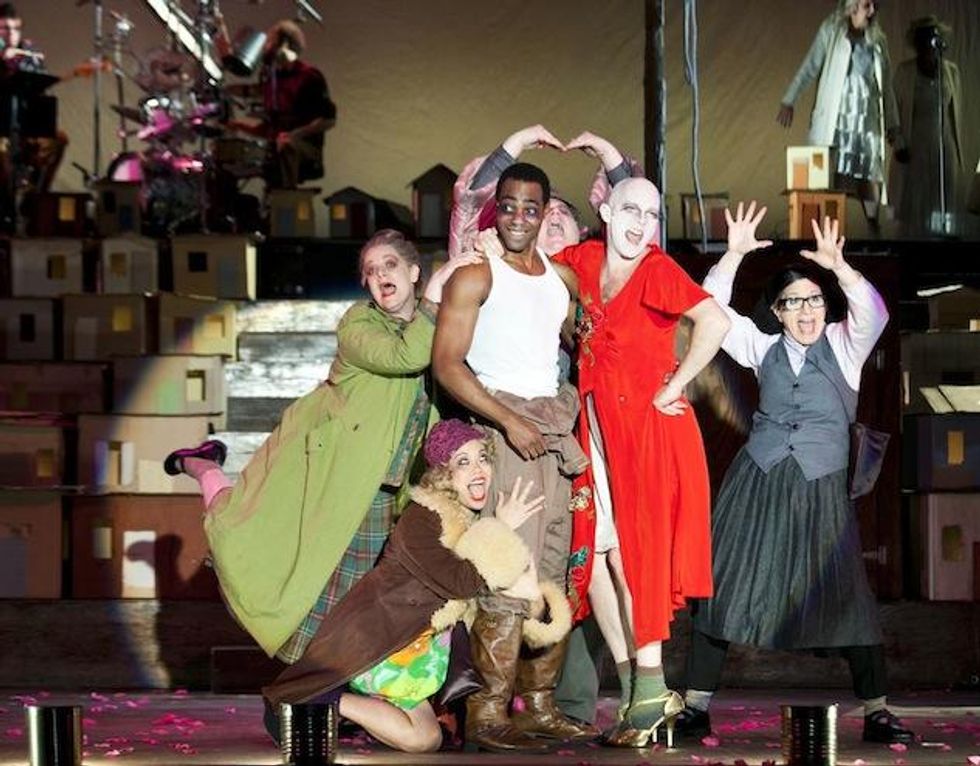Popnography
Taylor Mac Talks: 'Good Person of Szechwan'

Bertolt Brecht’s play asks what it means to live a virtuous life in a corrupt society; Taylor plays it trans
February 21 2013 9:46 AM EST
August 14 2017 5:30 AM EST
jerryportwood
By continuing to use our site, you agree to our Private Policy and Terms of Use.

Bertolt Brecht’s play asks what it means to live a virtuous life in a corrupt society; Taylor plays it trans
Photos by Pavel Antonov
Typically Shen Te, the "good" person in Bertolt Brecht's Good Person of Szechwan, is played by a woman, but in the Foundry Theatre's production (which continues through February 24 at La MaMa in New York City), she's played by the always surprising, multi-hyphenate actor, singer Taylor Mac.
"It's about a woman who dresses like a man in order to take control," Mac explained to us during a recent interview at his home. "Shen Te gives a lot. As a result of giving so much, she's on the brink of losing everything. So she dresses like a man in order to be mean. Normally it's played by a woman, but this time they had me play it."
But Mac, who most recently was seen on stage in an extraordinary version of Puck in Shakespeare's A Midsummer Night's Dream, says he doesn't think of it as a man playing it. "I think of it as some form of trans. Which I do think I am. I don't think of myself as transsexual. I say my gender is "performer." And my preferred gender pronoun is Judy, in case anyone is asking."
So does that mean Shen Te, a prostitute who proves her worth and morals while the world tries to corrupt her is actually a trans woman? "I'm playing a trans person playing a man," Mac explains, patiently. "I think that's the best way to describe it. The director [Lear deBessonet] had the vision to have me in it, and she asked if I wanted to do it. I'd never done a Brecht, so I was kind of terrified. I didn't know how to play this particular role, but it seems to be working."
As Mac discovered, his own personal work which is known for playful provocation--and has included everything from a giant flower in an epic five-hour theatrical search for identity to a hermaphroditic Coney Island sea creature, or singing a ballad about the love between Lynne Cheney and Saddam Hussein--is much more in line with a Brechtian tradition than he had realized.

Next up: Mac is working on a vaudeville-esque show with Mandy Patinkin (yes, THAT Mandy, THAT Patinkin), The Mandy and Mac Show, in which they play the last two people on earth in an apocalyptic vaudeville. "There's no gender drag in it," he says. "We are both vaudeville performers who are last two people on earth: so what do we do? We sing songs. It's a great time, and there's no dialogue."
Mac's other herculean creative effort will be a 24-Hour concert, a project that will indeed have him performing songs for 24 hours that span a century of pop music. He's been rigorously rehearsing and performing them at monthly gigs to prepare for the task. Mac seems happy with his arduous creative pursuits and has already fulfilled so many of his dreams.
"When I was 13, all I wanted to do was sing with Mandy Patinkin. Then, when I was 14, all I wanted to was meet Michael Stipe. By the time I turned 15, I had forgotten about them both and moved on," Mac explains. "Recently, I was singing a sort of ballad version of 'It's the End of the World as You Know It' with Mandy Patinkin for Michael Stipe. It was very strange, this fulfillment of this teenage fantasy."